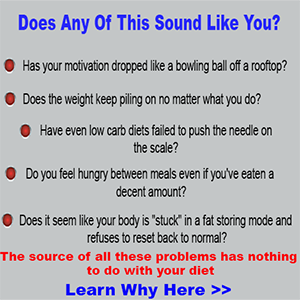This RED Antioxidant Eats Fat All Day Long
Have you ever wondered why krill oil was brightly colored red instead of yellow like other marine omega-3 lipids? Well, this powerful dark shade of red is not only pretty to look at, but, research as suggests, it may enable you to burn more fat and increase your athletic endurance and performance--which are benefits we are all looking to achieve!.
The pigment responsible for giving krill oil its unique color is a special red carotenoid, called astaxanthin. Is isn't that its just a mouthful to say, it may also have a laundry list of pharmacological benefits including: an powerful antioxidant, anti-cancer, anti-diabetic, and an anti-inflammatory agent (according numerous research studies).
Today, however, we’re going to just focus on two areas: fat loss and endurance.
Sources of Astaxanthin
Astaxanthin is a powerful antioxidant that occurs naturally in a few different foods- -mainly found in marine sources.
This antioxidant may be the primary reason why some fish and seafood are colored red. For example, the pink flesh of salmon is overloaded with Astaxanthin.
However, you do have to be careful. Many of the farmed fish currently on the market, are given a synthetic version of astaxanthin, or their flesh is dyed RED in order for the fish to be more appealing to you when it hits the market.
One reason for this is that feed that is fed to farmed-raised fish contains very little—if any at all!
In the wild, salmon (and other fish) naturally get astaxanthin from the microalgae they eat. In fact, microalgae is the greatest naturally-occurring source of astaxanthin; shrimp, krill, and salmon are all red from eating it.
Another place where you may be able to get astaxanthin is from bright yellow egg yolks. But again, this usually comes from a synthetic form of astaxanthin that is fed to chickens.
Your best bet would be to go with organic chicken!
Organic chickens are fed natural compounds containing astaxanthin, so it would naturally be a better alternative than commerical raised eggs and chicken.
Plus, most red, yellow, and orange fruits and vegetables are colored due to other natural carotenoids, like beta-carotene.
The best way for humans to get astaxanthin naturally is to eat a diet of wild salmon, trout, seafood, and organic chicken eggs, and take supplements rich in astaxanthin, like krill oil.
Fat Loss, Endurance and You
Here’s the awesome news:
A group of researchers from Japan showed that mice, given different doses of astaxanthin combined with a high fat diet, actually LOST weight and body fat!
They also showed that mice fed the astaxanthin had lower levels of fat in the liver, triglyceride levels, and cholesterol levels compared to the control.
Simply put, this means that astaxanthin protected mice fed a high fat diet form 1) gaining weight and 2) having altered blood cholesterol and triglyceride levels!
How did it work?
The researchers believe that astaxanthin may be able to reduce the digestion and absorption of dietary fat.
They also believe that astaxanthin may increase the usage of dietary fat as an energy source. They determined this was the case because there was a decrease in RER (indicates when fat is the primary fuel source compared to carbohydrates).
In another similar study, this time looking at astaxanthin and exercise, the researchers showed that astaxanthin may have been able to increase fat usage to fuel the exercise.
They also noted an accelerated decrease in body dat.
Also, the researchers showed that astaxanthin was able to spare stored sugar in the muscles (called glycogen and is the main
source of fuel during exercise) and utilized more stored fat to fuel the workouts.
Finally, mice given astaxanthin in doses of either 1.2, 6, or 30 mg/kg body weight for 5 weeks, along with regular swimming exercise, were shown to have a significant increase in exercise time to exhaustion (meaning they swam longer) than mice given a placebo.
Blood lactate levels (a marker of exercise fatigue) were lower in the animals given astaxanthin, while blood non-esterified fatty acid and glucose levels were higher (indicating that astaxanthin spared blood energy sources).
Overall, astaxanthin improved swimming endurance when given for only a short period of time.
What Dose is Needed for Humans?
Many people criticize animal research as being irrelevant to humans, but that’s not entirely correct.
True, we’re a different species, but our enzymes, muscle function, and metabolisms are scarily similar.
Plus, there are only so many humans you can poke holes in before someone starts to get suspicious. But I digress…
So what how does the research (again, all done on mice) translate to humans?
Well, it’s actually pretty easy!
Although the lowest level of astaxanthin used in this study is 100 grams, humans may actually be able to get away with just 12 grams per day!
This includes getting astaxanthin from all dietary sources!
This dose has been shown effective at lowering both cholesterol and triglycerides, plus other astounding benefits.
But here’s where it gets really cool…
Astaxaanthin is a fat-soluble vitamin. So the more you take on an everyday basis, the better because it may accumulate in your tissue.
So a smaller dose, over a long period of time, may have some pretty tremendous benefits in your body.
Astounding Astaxanthin
Overall, based on current research, astaxanthin holds promise as a fat-burning, exercise-enhancing, health-improving dietary nutrient.
Further research may confirm this trend.
And one of the EASIEST AND SIMPLEST way to not miss your daily dose of astaxanthin is by using a quality Krill Oil chocked full of astaxanthin.
This, in addition to eating a diet rich in red-colored seafood like salmon and shrimp, may increase the tools to keep your body lean, fit, and free of disease.
And, in this age of chronic diseases and foods full of high-calorie anti-nutrients, we need all the tools we can get.
Resources:
Ikeuchi M, Koyama T, Takahashi J, Yazawa K. Effects of astaxanthin in obese mice fed a high-fat diet. Biosci Biotechnol Biochem. 2007 Apr;71(4):893-9. Epub 2007 Apr 7.
Aoi W, Naito Y, Takanami Y, Ishii T, Kawai Y, Akagiri S, Kato Y, Osawa T, Yoshikawa T. Astaxanthin improves muscle lipid metabolism in exercise via inhibitory effect of oxidative CPT I modification. Biochem Biophys Res Commun. 2008 Feb 22;366(4):892-7. Epub 2007 Dec 17.
Ikeuchi M, Koyama T, Takahashi J, Yazawa K. Effects of astaxanthin supplementation on exercise-induced fatigue in mice. Biol Pharm Bull. 2006 Oct;29(10):2106-10.
Yoshida H, Yanai H, Ito K, Tomono Y, Koikeda T, Tsukahara H, Tada N. Administration of natural astaxanthin increases serum HDL-cholesterol and adiponectin in subjects with mild hyperlipidemia. Atherosclerosis. 2010 Apr;209(2):520-3. Epub 2009 Oct 14.
Fassett RG, Coombes JS. Astaxanthin, oxidative stress, inflammation and cardiovascular disease. Future Cardiol. 2009 Jul;5(4):333-42.
About Jayson Hunter & Jaylab Pro

Jaylab Pro was founded by Registered Dietitian Jayson Hunter. Jayson has been recognized as one of America's foremost weight loss experts by America's Premier Experts™. He has also been featured in USA Today for this accomplishment. Jayson is also a best-selling author having co-authored multiple books in health & fitness and business growth. Jayson and the Jaylab Pro team are proud to create content that helps improve the lives of millions of people around the world. We hope you enjoy it just as much as others have.
 If you order a JayLabPro SmartShip product or any Combo Package, we will automatically ship you a new supply of the product or products you have ordered every month, starting 30 days after your initial order is shipped, and continuing until you cancel. The credit card you are using today will be billed the lowest available price for those product or products when your order is shipped, but shipping will be FREE. You may log into your customer account or call our customer service department toll-free at 1-888-9GETPRO (1-888-943-8776) between the hours of 8am – 9pm EST Mon-Fri to cancel future shipments, customize the timing of your shipments, or change the credit card used for billing.
If you order a JayLabPro SmartShip product or any Combo Package, we will automatically ship you a new supply of the product or products you have ordered every month, starting 30 days after your initial order is shipped, and continuing until you cancel. The credit card you are using today will be billed the lowest available price for those product or products when your order is shipped, but shipping will be FREE. You may log into your customer account or call our customer service department toll-free at 1-888-9GETPRO (1-888-943-8776) between the hours of 8am – 9pm EST Mon-Fri to cancel future shipments, customize the timing of your shipments, or change the credit card used for billing.









